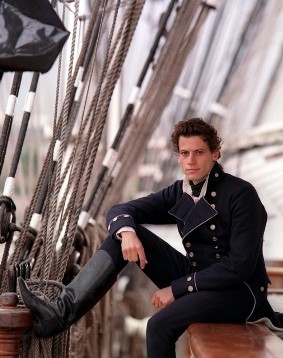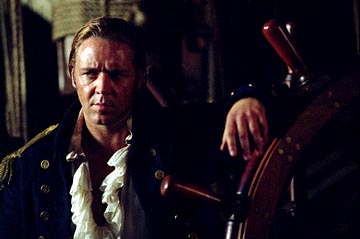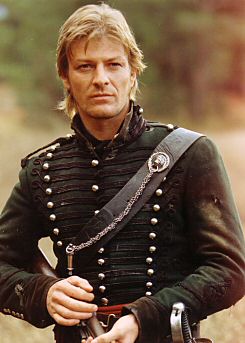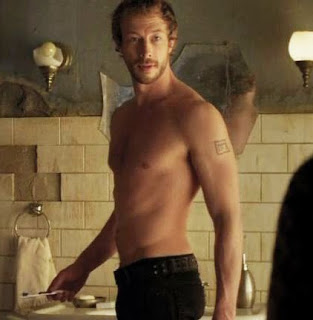 March 6 marks the birthday of one of my favorite poets, Elizabeth Barrett Browning! (in 1806, so she would be, er, 206…). It also seems appropriate for a romance writers blog, since she and Robert Browning had one of the great romances in literary history…
March 6 marks the birthday of one of my favorite poets, Elizabeth Barrett Browning! (in 1806, so she would be, er, 206…). It also seems appropriate for a romance writers blog, since she and Robert Browning had one of the great romances in literary history…
Elizabeth Barrett Moulton-Barrett was born at Coxhoe Hall in County Durham, England, the eldest of the 12 children of Edward and Mary Barrett Moulton-Barrett (it seems like a good idea for her to just go by one of those Barretts…). The family’s fortune originated with family plantations in Jamaica, and were later reduced by a lawsuit and by the abolition of slavery in the UK. In 1809, after the birth of Elizabeth’s sister Henrietta, Edward bought Hope End in Herefordshire, and ideal place for raising a family. Elizabeth was educated at home, attending lessons with her brother’s tutor which gave her a firm foundation in languages and literature. By age 10, it was said she could recite Paradise Lost and various Shakespeare plays; her first poem was written at age 8, and by 12 she had written an “epic” poem of 4 books of rhyming couplets. At 14, her father paid for the publication of her Homeric-style poem The Battle of Marathon. During this time she was known as “a shy, intensely studious, precocious child, yet cheerful, affectionate, and lovable.” Her friend Mary Russell Mitford described her as “A slight, delicate figure, with a shower of dark curls falling on either side of a most expressive face; large, tender eyes, richly fringed by dark eyelashes, and a smile like a sunbeam.”
But by the age of 20, Elizabeth was felled by a mysterious illness, made worse by her use of morphine for the pain. In 1824, the London paper The Globe and Traveler printed her poem Stanzas on the Death of Lord Byron, around the same time her father’s Jamaica property began to go downhill. In 1826, she published her first collection of poems, but by 1830 Hope End had to be sold and the family moved 3 times between 1832 and 1837 (first to Sidmouth in Devonshire, where they lived for 3 years, then to Gloucester Place in London, where she wrote more poems and articles). Finally they settled at 50 Wimpole Street, where a family friend, John Kenyon, introduced Elizabeth to the literary luminaries of the day, including Wordsworth, Coleridge, Tennyson, Carlyle, and Mary Russell Mitford (who became her good friend, and helped her to publish more of her work).
 In 1838, at her doctor’s advice, Elizabeth went to live for a time at Torquay along with her brother Edward. His death by drowning there in 1840 sent her into a terrible downward spiral, and she returned to Wimpole Street as an invalid and recluse, kept company mostly by her beloved spaniel Flush. She kept writing, though, and in 1844 two volumes were published, A Drama of Exile, a Vision of Poets and Lady Geraldine’s Courtship. These volumes made her one of the most popular writers of the time and inspired Robert Browning to write her a fan letter. Kenyon arranged for them to meet in May 1845, and thus began the most famous courtship in literary history.
In 1838, at her doctor’s advice, Elizabeth went to live for a time at Torquay along with her brother Edward. His death by drowning there in 1840 sent her into a terrible downward spiral, and she returned to Wimpole Street as an invalid and recluse, kept company mostly by her beloved spaniel Flush. She kept writing, though, and in 1844 two volumes were published, A Drama of Exile, a Vision of Poets and Lady Geraldine’s Courtship. These volumes made her one of the most popular writers of the time and inspired Robert Browning to write her a fan letter. Kenyon arranged for them to meet in May 1845, and thus began the most famous courtship in literary history.
She was six years his elder and an invalid, and it took some time for Robert to persuade her that his love was real. Her doubts were expressed beautifully in her most famous volume, Sonnets From the Portugese, which she wrote over the next several months. They finally eloped to the church of St. Marylebone and then ran off to Florence, with Elizabeth disinherited by her father (who did the same to all his children who dared marry!). But she had some money of her own, and they sold their poems for a comfortable life and happy marriage in Italy. Her health improved in the sunny weather, and in 1849, at age 43, she gave birth to their son Robert, always called Pen. Her writing went well, too. In 1850, on the death of Wordsworth, she was shortlisted for the position of poet laureate, but it went to Tennyson.
 Elizabeth Barrett Browning died on June 29, 1861 and was buried at the English Cemetery in Florence.
Elizabeth Barrett Browning died on June 29, 1861 and was buried at the English Cemetery in Florence.
A few great sources on her life are:
Life of Elizabeth Browning, Glenn Everett (2002)
Dared and Done: The Marriage of Elizabeth Barrett and Robert Browning, Julia Markus (1995)
Elizabeth Barrett and Robert Browning: A Creative Partnership, Mary Sanders Pollock (2003)
Who are some of your favorite poets?? What are some romantic couples in history you like to read about?
How do I love thee? Let me count the ways.
I love thee to the depth and breadth and height
My soul can reach, when feeling out of sight
For the ends of Being and ideal Grace.
I love thee to the level of everyday’s
Most quiet need, by sun and candle-light.
I love thee freely, as men strive for Right;
I love thee purely, as they turn from Praise.
I love thee with a passion put to use
In my old griefs, and with my childhood’s faith.
I love thee with a love I seemed to lose
With my lost saints, — I love thee with the breath,
Smiles, tears, of all my life! — and, if God choose,
I shall but love thee better after death.
 Dreadfully Important Survey here. Much more important than that census nonsense. The fate of the world hangs in the balance.
Dreadfully Important Survey here. Much more important than that census nonsense. The fate of the world hangs in the balance.







